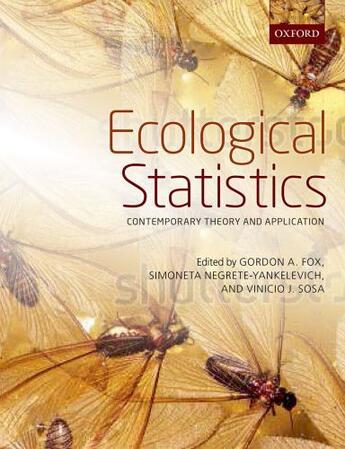Des idées de lecture pour ce début d'année !
Passionné(e) de lecture ? Inscrivez-vous
gratuitement ou connectez-vous pour rejoindre la
communauté et bénéficier de toutes les fonctionnalités du site !

The application and interpretation of statistics are central to ecological study and practice. Ecologists are now asking more sophisticated questions than in the past. These new questions, together with the continued growth of computing power and the availability of new software, have created a new generation of statistical techniques. These have resulted in major recent developments in both our understanding and practice of ecological statistics.
This novel book synthesizes a number of these changes, addressing key approaches and issues that tend to be overlooked in other books such as missing/censored data, correlation structure of data, heterogeneous data, and complex causal relationships. These issues characterize a large proportion of ecological data, but most ecologists' training in traditional statistics simply does not provide them with adequate preparation to handle the associated challenges. Uniquely, Ecological Statistics highlights the underlying links among many statistical approaches that attempt to tackle these issues. In particular, it gives readers an introduction to approaches to inference, likelihoods, generalized linear (mixed) models, spatially or phylogenetically-structured data, and data synthesis, with a strong emphasis on conceptual understanding and subsequent application to data analysis.
Written by a team of practicing ecologists, mathematical explanations have been kept to the minimum necessary. This user-friendly textbook will be suitable for graduate students, researchers, and practitioners in the fields of ecology, evolution, environmental studies, and computational biology who are interested in updating their statistical tool kits. A companion web site provides example data sets and commented code in the R language.
Il n'y a pas encore de discussion sur ce livre
Soyez le premier à en lancer une !

Des idées de lecture pour ce début d'année !

Si certaines sont impressionnantes et effrayantes, d'autres sont drôles et rassurantes !

A gagner : la BD jeunesse adaptée du classique de Mary Shelley !

Caraïbes, 1492. "Ce sont ceux qui ont posé le pied sur ces terres qui ont amené la barbarie, la torture, la cruauté, la destruction des lieux, la mort..."